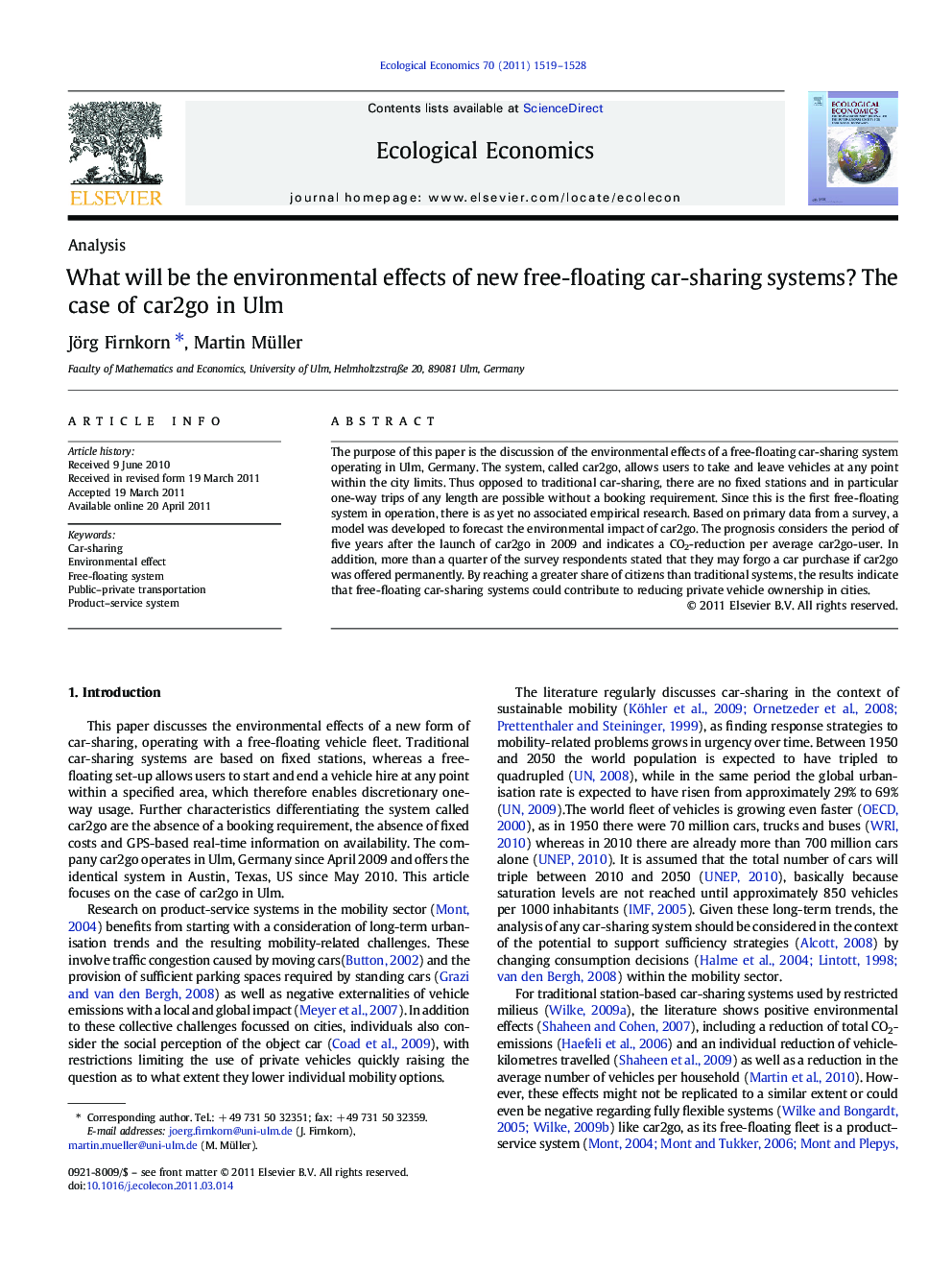| Article ID | Journal | Published Year | Pages | File Type |
|---|---|---|---|---|
| 5050537 | Ecological Economics | 2011 | 10 Pages |
The purpose of this paper is the discussion of the environmental effects of a free-floating car-sharing system operating in Ulm, Germany. The system, called car2go, allows users to take and leave vehicles at any point within the city limits. Thus opposed to traditional car-sharing, there are no fixed stations and in particular one-way trips of any length are possible without a booking requirement. Since this is the first free-floating system in operation, there is as yet no associated empirical research. Based on primary data from a survey, a model was developed to forecast the environmental impact of car2go. The prognosis considers the period of five years after the launch of car2go in 2009 and indicates a CO2-reduction per average car2go-user. In addition, more than a quarter of the survey respondents stated that they may forgo a car purchase if car2go was offered permanently. By reaching a greater share of citizens than traditional systems, the results indicate that free-floating car-sharing systems could contribute to reducing private vehicle ownership in cities.
Research Highlights⺠This study discusses the environmental effects of a free-floating car-sharing system. ⺠The applied research design is a forecast, based on a quantitative survey. ⺠The results are similar per average car-sharing user compared to traditional systems. ⺠But through a higher market penetration more users are reached. ⺠Free-floating fleets could reduce car ownership in cities.
